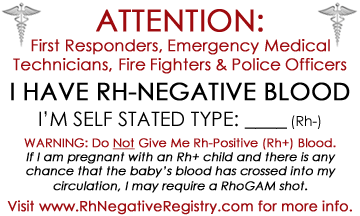

+blood+group+system+is+one+of+the+35+current+human+blood+group+systems..jpg)
Yes, it’s the blood type of demon-human or alien-human hybrid creatures (more below) It’s also central to certain conspiracy theories that include the Nephilim.ĭoesn’t contain a protein on red blood cellsĬontains a protein on the surface of red blood cellsīasis of conspiracies involving the Bible Rh-negative blood can negatively affect pregnancies if it’s not treated. The Rh blood group, which includes Rh-negative and Rh-positive, was discovered in 1940.Īs the table below shows, the presence of a protein determines Rh blood type. Blood types were discovered about 1,800 years later, in the early 20th century. RhoGAM is routinely given whenever there’s a possibility of the mom’s blood mixing with the baby’s.What does Rh-negative blood have to do with the Nephilim? See below Rh-negative blood and Rh-positive blood: proteins, pregnancy, and conspiracy theoriesīiblical authors finished writing in the late first century. This prevents her from making antibodies to Rh positive blood - antibodies that can destroy her baby’s blood cells. That’s because it can take longer than 9 months for an Rh negative mom to make antibodies that fight Rh positive blood.Īn Rh negative mom (not her baby) will receive RhoGAM at several points throughout pregnancy when the Rh factor of the dad is positive or unknown. First pregnancies aren’t usually affected by Rh incompatibility.Sometimes your baby’s Rh incompatibility can produce only mild complications that don’t require treatment.give your baby a blood transfusion via the umbilical cord, before your baby ever checks out of the Comfort Inn that is your womb.order screening tests, like an ultrasound, to monitor your baby’s development.If you do have antibodies, RhoGAM won’t help your baby.You may need this screening test several times throughout pregnancy to gauge your level of antibodies (the higher they are, the more severe your baby’s complications may be).Your baby is at risk for Rh incompatibility if their dad is Rh positive.If you have antibodies, it means you’ve already been exposed to Rh positive blood - from a previous delivery, for example, an abortion, or even a mismatched blood transfusion.Antibodies are proteins your immune system makes to fight off substances foreign to your body (like Rh positive blood).A blood test is usually done at one of your first prenatal visits.Īnd - get used to those needle sticks - if you’re Rh negative, your doctor will also do a screening blood test to check for Rh antibodies.If both parents are Rh positive, the baby is Rh positive.If both parents are Rh negative, the baby is too.There’s also a 50 percent chance your baby will inherit their father’s Rh positive factor, and that results in Rh incompatibility.ĭetermining Rh incompatibility can be as simple as taking blood samples from you, and, ideally, the baby’s dad.There’s a 50 percent chance your baby will inherit your negative Rh factor, which means you’re both Rh compatible.According to the National Heart, Lung and Blood Institute: Rh incompatibility occurs when an Rh negative woman conceives a baby with an Rh positive man. To offset problems, your doctor can give you a shot of RhoGAM - generic: Rho(D) immune globulin - at about 28 weeks of pregnancy and whenever your blood may mix with your baby’s, like during prenatal tests or delivery. While it’s important to be screened for the disease, Rh incompatibility is rare and preventable. This is called Rh incompatibility, or Rh disease.īut don’t push the panic button just yet.

When you’re Rh negative and the baby’s biological father is Rh positive, some life threatening complications can arise if the baby inherits dad’s positive Rh factor. Pregnancy is really the only time when there might be some bad blood (pun intended!) between you and your Rh factor. You inherited your Rh factor from your parents, just like you inherited your mom’s brown eyes and your dad’s high cheek bones. And they’re also born with a Rhesus (Rh) factor, which is positive or negative. When you’re pregnant, you may learn that your baby isn’t your type - blood type, that is.Įvery person is born with a blood type - O, A, B, or AB.


 0 kommentar(er)
0 kommentar(er)
